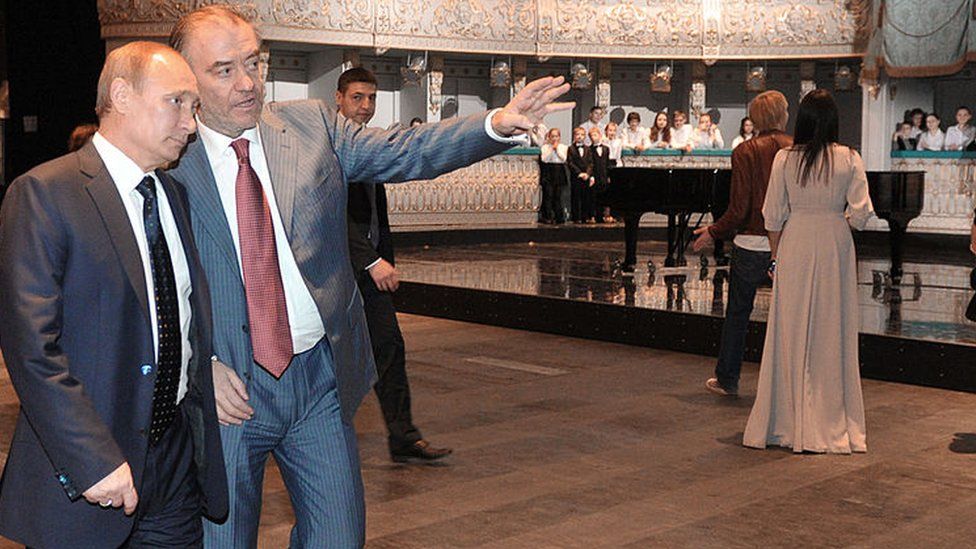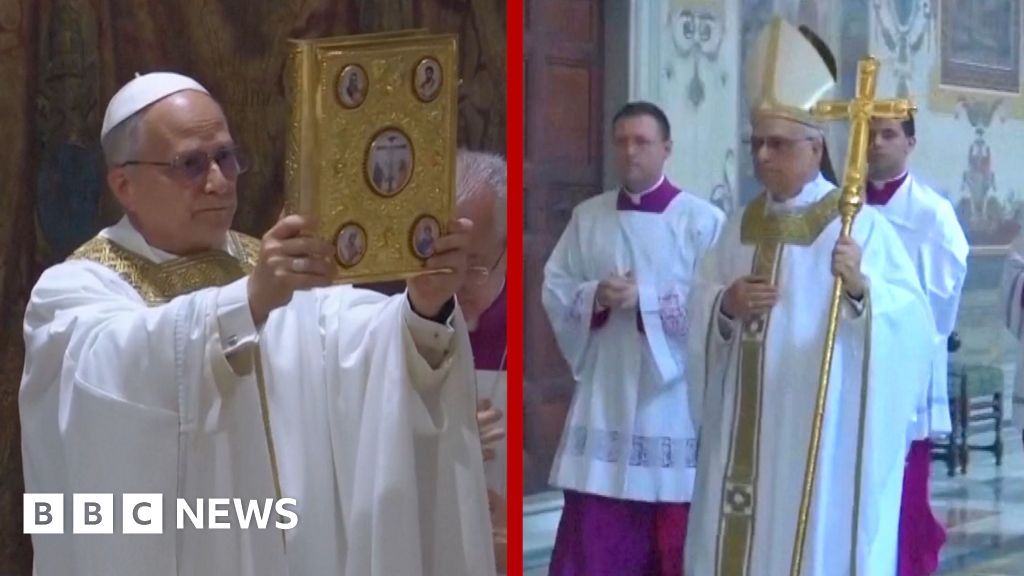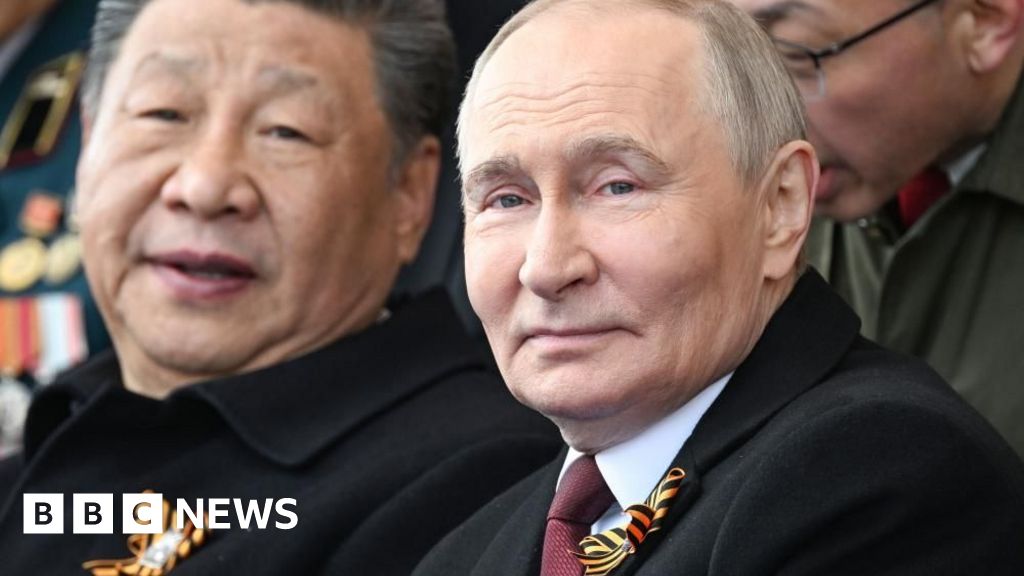ARTICLE AD BOX
 Image source, ALEXEY NIKOLSKY/AFP
Image source, ALEXEY NIKOLSKY/AFP
Russia's best-known conductor Valery Gergiev has been named head of Moscow's Bolshoi Theatre, alongside his current role at Russia's other top theatre, the Mariinsky in St Petersburg.
The two powerhouses of Russian culture combine ballet, opera and orchestras.
Gergiev was appointed by Prime Minister Mikhail Mishustin, replacing Vladimir Urin, who stepped down at his own request, the government said.
For years he has been an active supporter of President Vladimir Putin.
But his star has fallen in the West.
When Russian forces began their full-scale invasion of Ukraine last year, he was fired as chief conductor of the Munich Philharmonic because of his backing for the Russian leader.
He was dropped from La Scala in Milan when he failed to respond to a request to strongly condemn the invasion. Gergiev had also openly backed Russia's seizure of Crimea in 2014.
Ties with the maestro were also cut by the Rotterdam Philharmonic, Vienna Philharmonic and Edinburgh International Festival.
Since then his only performances outside Russia have been in China. Recently he took the Mariinsky's ballet, opera and orchestra on a tour of six Chinese cities with performances ranging from Swan Lake and Wagner's Ring Cycle to Stravinsky's Firebird.
Gergiev, 70, has been artistic and general director of the Mariinsky since 1996 but now has the daunting task of running Russia's two biggest ballet and opera theatres. Reports suggest he has sought the Bolshoi role for many years.
Image source, Hiroyuki Ito/Getty Images
Image caption,Valery Gergiev was fired by the Munich Philharmonic at the start of Russia's full-scale war in Ukraine
His predecessor at the Bolshoi, 76-year-old Vladimir Urin, did not explain why he was stepping down after 10 years in the job. Although he joined a number of cultural figures in signing an anti-war letter at the start of the war, he later admitted that some names had been removed from Bolshoi posters because they had made anti-war statements.
Last May, the Bolshoi cancelled performances by two of Russia's best-known modern directors who had spoken out against the war, Kirill Serebrennikov and Timofey Kulyabin.
Meanwhile, Valery Gergiev has received a string of awards under President Putin over the years, including an Order of Merit to the Fatherland this year. He took the Mariinsky Symphony Orchestra to perform in the ancient ruins of Palmyra, when Russian air strikes helped drive out so-called Islamic State in 2016.
Within weeks of the start of the war, President Putin touted the idea to Gergiev of placing the Bolshoi and Mariinsky theatres under a joint directorate, suggesting that was how they were organised before the 1917 Russian Revolution.
According to a Kremlin transcript of the meeting, the maestro gave a long-winded but favourable response, pointing out that the two theatres represented "one of the most powerful musical or musical theatre traditions on Earth".
"Perhaps the time has come to think about how to coordinate efforts," he is quoted as saying.
But Deputy Prime Minister Tatyana Golikova denied the two historic institutions would unite.
"The Bolshoi and Mariinsky Theatres have existed and will continue to exist as independent legal entities," she said, according to Ria news agency.
Gergiev told his new colleagues at the Bolshoi that the change was "very good news", in remarks quoted by Interfax news agency.
"We can exchange performances, we can tour on the stages of both theatres."

 1 year ago
27
1 year ago
27








 English (US) ·
English (US) ·